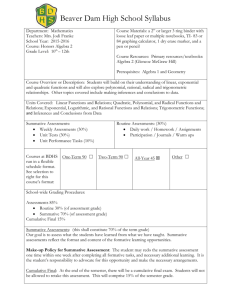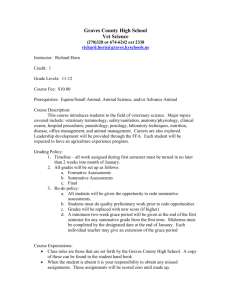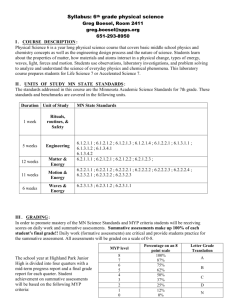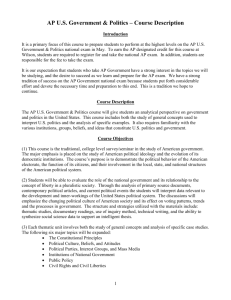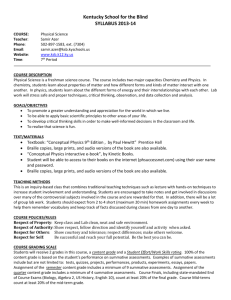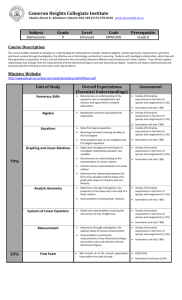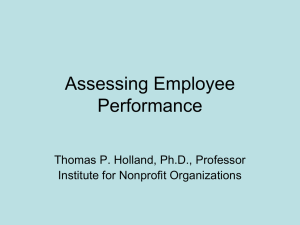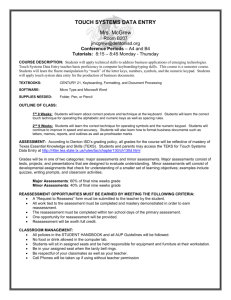Denton ISD Grading Policy & Assessment Guidelines
advertisement
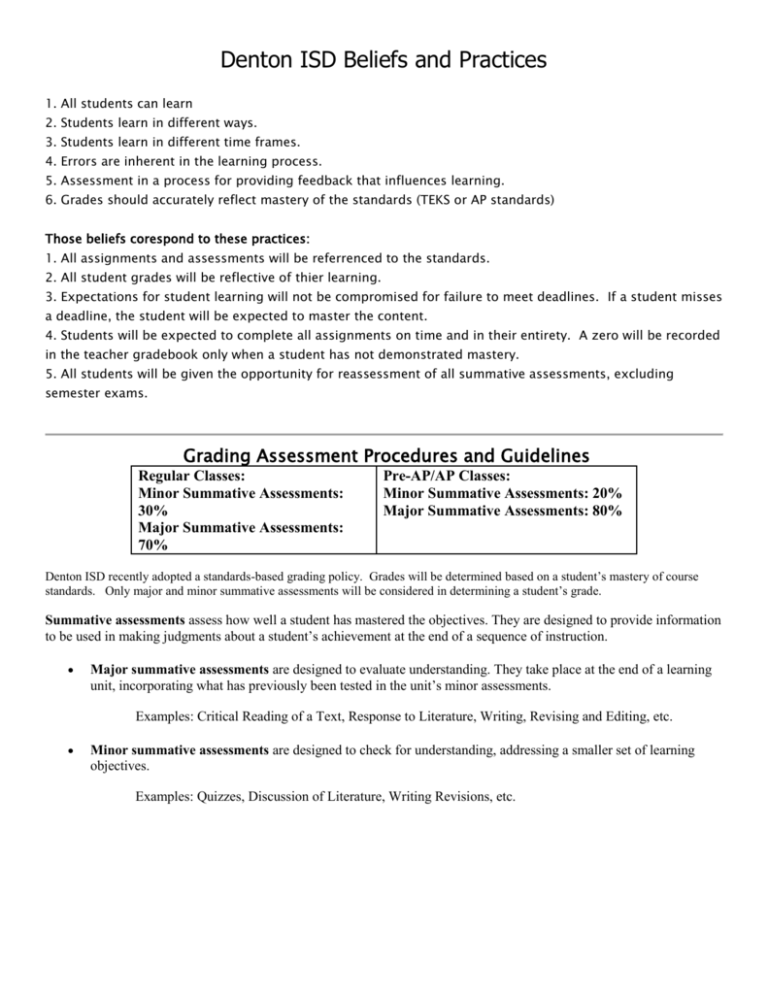
Denton ISD Beliefs and Practices 1. All students can learn 2. Students learn in different ways. 3. Students learn in different time frames. 4. Errors are inherent in the learning process. 5. Assessment in a process for providing feedback that influences learning. 6. Grades should accurately reflect mastery of the standards (TEKS or AP standards) Those beliefs corespond to these practices: 1. All assignments and assessments will be referrenced to the standards. 2. All student grades will be reflective of thier learning. 3. Expectations for student learning will not be compromised for failure to meet deadlines. If a student misses a deadline, the student will be expected to master the content. 4. Students will be expected to complete all assignments on time and in their entirety. A zero will be recorded in the teacher gradebook only when a student has not demonstrated mastery. 5. All students will be given the opportunity for reassessment of all summative assessments, excluding semester exams. Grading Assessment Procedures and Guidelines Regular Classes: Minor Summative Assessments: 30% Major Summative Assessments: 70% Pre-AP/AP Classes: Minor Summative Assessments: 20% Major Summative Assessments: 80% Denton ISD recently adopted a standards-based grading policy. Grades will be determined based on a student’s mastery of course standards. Only major and minor summative assessments will be considered in determining a student’s grade. Summative assessments assess how well a student has mastered the objectives. They are designed to provide information to be used in making judgments about a student’s achievement at the end of a sequence of instruction. Major summative assessments are designed to evaluate understanding. They take place at the end of a learning unit, incorporating what has previously been tested in the unit’s minor assessments. Examples: Critical Reading of a Text, Response to Literature, Writing, Revising and Editing, etc. Minor summative assessments are designed to check for understanding, addressing a smaller set of learning objectives. Examples: Quizzes, Discussion of Literature, Writing Revisions, etc. Formative assessments will be given continually. They are practice so that the student and teacher can gage the success of the student. They are designed to provide direction for improvement and/or adjustment of teaching and learning activities for individual students or for a whole class. Examples: teacher observation, discussion, practice, homework, instructional questions, initial drafts/attempts, independent practice, daily work, Reassessment: Because students master material and learning at different rates, students may reassess summative assessments if they have not demonstrated mastery. A student may opt to retake assessments only after he or she has demonstrated new learning to justify a reassessment. Demonstration of new learning is determined by the teacher. As a general guideline, reassessment must be completed within one week of the primary assessment. A student may reassess once on a minor or major summative; reassessments are worth full credit. Non-Academic Work/Behaviors: Work or behaviors that are not supported by the standards are considered nonacademic. There have been many misunderstandings regarding what this means for students at Guyer. Students will still have homework. Students will still have due dates and deadlines. Actions that impede the learning process such as not completing assignments, not participating in class, chronically turning in late work, etc. may be met with disciplinary measures that include, but are not limited to: detention Saturday School ISSC loss of parking permit loss of dismissal period Academic Integrity Cheating or plagiarism will not be tolerated. This includes copying another’s homework, copying from the internet, or representing another’s work as your own. Please review Denton ISD’s Academic Integrity Policy in the Student Code of Conduct for more details.
